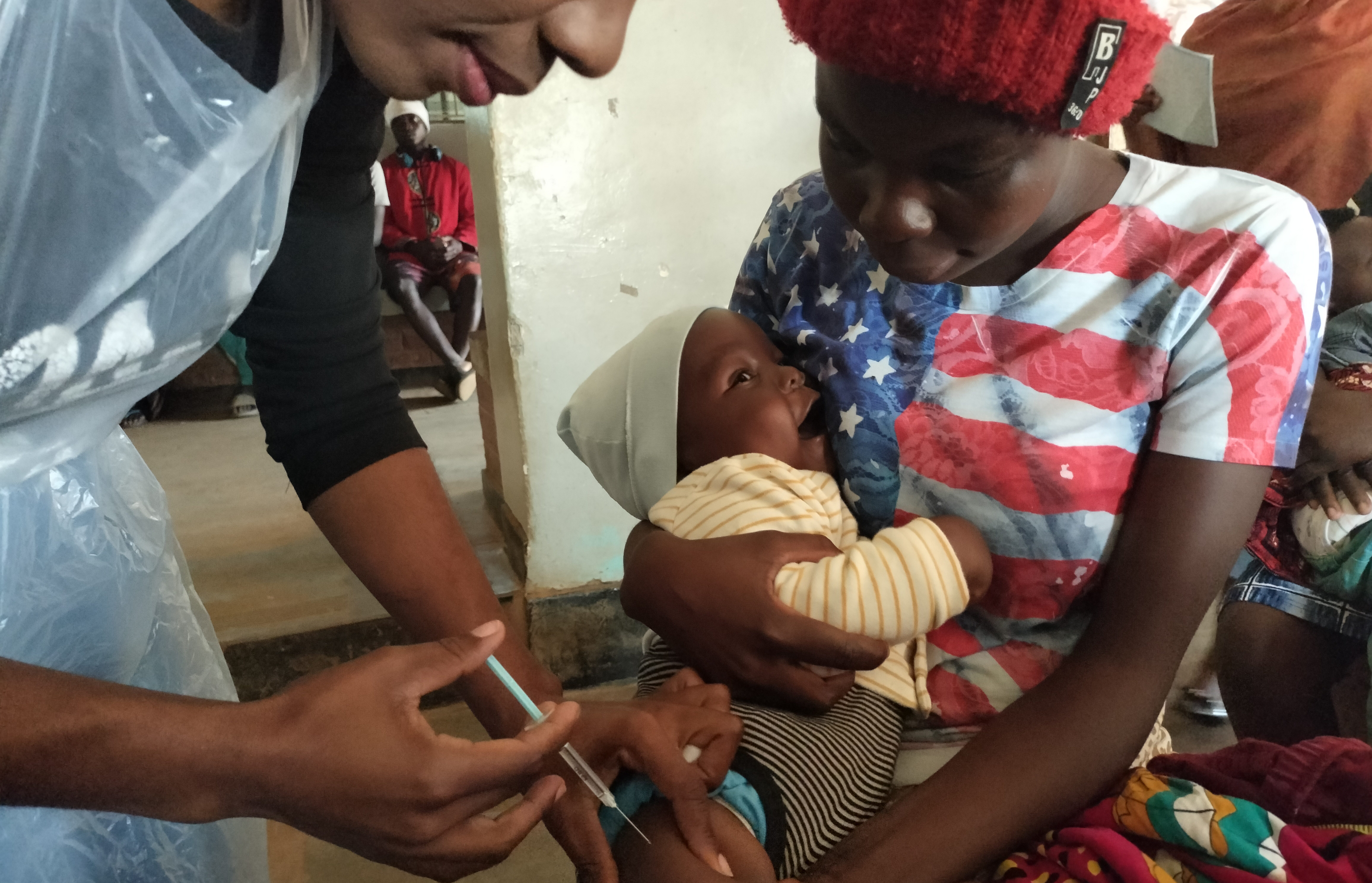A new study led by the Johns Hopkins Center for Communication Program suggests that using more youth-friendly social and behavior change interventions for pregnant adolescents could increase early prenatal visits, which are associated with reduced malaria and improved birth outcomes.
Adolescents make up 20 percent of pregnancies in sub-Saharan Africa and are at increased risk for getting malaria in pregnancy. Seeking early prenatal care makes it more likely that women will receive the recommended doses of intermittent preventive treatment of malaria in pregnancy and have better outcomes.
In a paper published in August in the American Journal of Tropical Medicine and Hygiene, CCP researchers analyzed data from Malaria Behavior Surveys they conducted in Malawi and the Democratic Republic of Congo (DRC) in 2021 under the Breakthrough ACTION project. They found that knowledge, attitudes and a young woman’s belief in her capacity to seek prenatal care impacted whether she intends to seek pregnancy care in the first trimester. They looked at results from 827 women in Malawi and 1,321 women in the DRC.
“When we talk about pregnant youth, it is important to catch them early,” says CCP’s Stella Babalola, PhD, who led the research. “It is important, for example, to catch them at a point that they are thinking of a pregnancy, not already when they are pregnant, or maybe six months pregnant, and it’s too late for early prenatal care.”
The proportion of pregnant women and girls in Malawi and DRC attending at least four prenatal care visits is relatively low, at 51 percent in Malawi and 43 percent in DRC. The use of preventive malaria treatment during pregnancy uptake differs significantly between Malawi and the
DRC, with 41 percent of women in Malawi taking at least three doses of their past pregnancy compared with only 13 percent in the DRC.
Early prenatal care visits have typically been low in both Malawi and the DRC, with only 24 percent and 17 percent of pregnant women attending prenatal appointments in the first trimester. While the ideal time for the first dose of malaria prevention medication is at the beginning of the second trimester, early prenatal care generally increases overall prenatal attendance and use of medication to reduce the risk of malaria.
But they are not easy to reach, especially in rural areas. The researchers split the data into two groups: Adolescents ages 15-20 and women over 21.
In Malawi, for example, few adolescents have access to television or radio or mobile phones, some widely used ways to spread health messages. The older women were more likely to own phones and were more likely to have received health messages. In the DRC, the widest gap was in mobile phone usage, with coverage for one in three women over 21 and only 15 percent in adolescents.
“I think a lot of interventions and activities focus on just one audience in their campaigns: There are, say, five posters and that’s what they’re showing to everyone,” says CCP researcher Michael Bride. “But it doesn’t work in Malawi and DRC. There needs to be better ways of reaching youth and we need to explore that more.”
Babalola suggests that school-based interventions could be a place to start. More community meetings with young people might help. Or even having religious leaders talk about the importance of prenatal care at weddings, where having children may be on everyone’s mind.
She says that it is also important to consider the media to which each country’s young people has access and create messages accordingly.
The adolescents and women in the CCP study were those who had given birth in the previous two years. Babalola and her team are working to find ways to get the attention of girls at an even younger age. Once someone is pregnant, helping her get early prenatal care and malaria prevention treatment is a more difficult task.
“You have to make sure you understand whom you’re talking to, and why you’re talking to them,” Bride says. “I think this paper highlights the need to focus on your audience.”
“Malaria-Related Psychosocial Factors, Past Antenatal Care–Seeking Behaviors, and Future Antenatal Care–Seeking Intentions by Maternal Age in Malawi and Democratic Republic of the Congo” was written by Bolanle Olapeju, Michael Bride, Julie R. Gutman, Jessica K. Butts, Ashley Malpass, Anna McCartney-Melstad, Lynn M. Van Lith, Katie Rodriguez, Susan Youll, Nyanyiwe Mbeye, Ferdinand Ntoya, Sosten Lankhulani, Florence Mpata and Stella Babalola.
Funding for this study was provided by the U.S. President’s Malaria Initiative and through the USAID under the Breakthrough ACTION Cooperative Agreement (#AID-OAA-A-17-00017).





